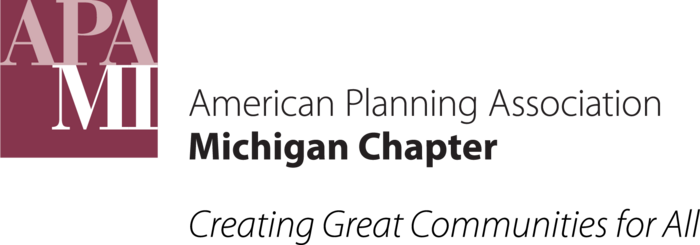Planning for Coastal Resilience
Michigan is home to the longest freshwater coastline in the world.
But in many community master plans and zoning ordinances, waterfronts are glossed over or ignored, given designations and regulations that treat them exactly the same as inland property. Without planning tailored directly to dynamic shorelines, communities are missing out on the economic, social, environmental, and quality of life benefits that water provides.
Locally regulating land use and development in waterfront zones is explicitly authorized under the Michigan Zoning Enabling Act. Local communities are not only permitted to protect their waterfronts through zoning – they are required to do so. Zoning should mitigate the impacts of flooding, shoreline erosion, and other hazards to ecosystems, and the public health, safety, and welfare.
These protections are especially important in an age of climate variability. With instances of extreme weather increasing, it is crucial for communities to assess their vulnerability and resiliency. Coastal areas tend to be amongst the most vulnerable, and keeping them safe, secure, vibrant, ecologically sound, and economically healthy should be among a community’s highest priorities.
This collection of information is designed to help coastal communities plan for, protect, and preserve their Great Lakes shorelines.
| Coastal Solutions Compendium | Survive and Thrive | MAP's Coastal Resilience Webinar Series | |
| This resource is designed to help land use decision-makers in the 387 Michigan jurisdictions that touch a Great Lakes coast to wisely manage their portion of our statewide treasure. As a Compendium, it collects and summarizes work done in a particular field of knowledge–in this case, Great lakes coastal management. | Report authored by MAP in 2019, provides lessons from Michigan coastal communities that have taken on planning and zoning for coastal resilience. | The March-April 2024 issue of the Michigan Planner, is designed to help elected and appointed municipal leaders and their professional staff understand the critical role that every community plays in protecting and wisely developing Michigan’s water wonderland. | These five webinars, recorded in 2023-2024, build on a statewide series of Coastal Leadership Academies hosted in 2022-2023. Topics focus on moving from analysis to action. Each webinar contains information and case studies from coastal Michigan communities. |
Michigan's Pathway to Resilience
MAP works with the Michigan Coastal Management Program (MCMP) to assist communities in their Pathway to Resilience. The goal is to enhance community preparedness and promote resiliency to mitigate the impacts of coastal hazards through increased knowledge of the risks, wise planning and zoning, and capacity building. Communities equipped with planning and data tools can effectively plan for growth and change; install practices and policies that protect, preserve, restore, enhance, and wisely develop coastal areas; and create networks for the collective impact of effective coastal management.
Coastal communities can take the following actions to become a Resilient-Ready Coastal Community:
- Participate in an MCMP Coastal Leadership Academy training
- Conduct a vulnerability assessment to identify gaps and recommendations
- Update a community Master Plan with a Resilient Chapter that is formally adopted consistent with Michigan law
- Adopt resilient policies and ordinances such as setbacks and no-build zones adopted consistent with Michigan law
- Install nature-based alternatives that respect riparian rights and protect Public Trust shorelines
Visit MCMP's Michigan's Resilient Coast webpage to find helpful resources such as the Building Coastal Resilience video series and the Resilient Coastal Communities Planning Guide.
Explore additional coastal resilience topics in MAP's 2023-2024 free webinar series.

